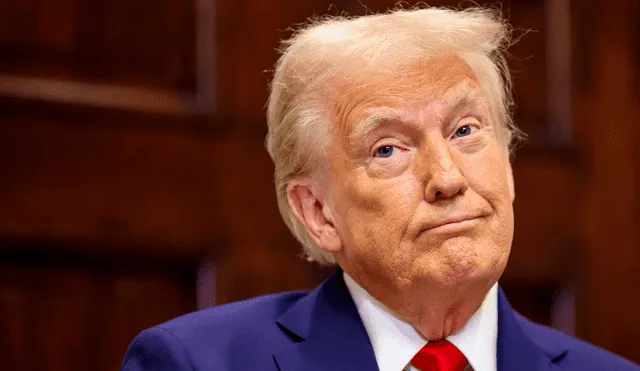Trump revoked hundreds of students visas, causing quick exits for international students
The recent revocation of hundreds of international student visas by the U.S. government has left many students scrambling to make arrangements, sparking concern within the academic community.

The recent revocation of hundreds of international student visas has raised concern across the U.S. academic community. Affected students are now facing uncertainty as they rush to make plans in response to these changes.
This unprecedented action has sparked debates about the implications for students and the wider impact on higher education. As the situation unfolds, many are seeking clarification on the reasons behind the decisions and what it means for the future of international students in the U.S.
Trump administration revoke international students visas
The Trump administration has recently revoked hundreds of international student visas across the country, leaving many students scrambling to depart the United States in just a few days.
Universities have reported instances where students were forced to leave immediately after finding out their visas were canceled through the federal Student Exchange and Visitor Information System (SEVIS) or through unexpected notifications via text or email. Many universities were contacted by USA TODAY and declined to provide specifics, citing student privacy concerns.
Immigration experts say this is an unprecedented move, as they’ve never seen such sweeping changes made to the process of hosting international students. The National Immigration Project is actively challenging the cancellations, which have affected students from several states including California, Colorado, Kentucky, Ohio, Michigan, Massachusetts, and Florida, among others.
Although these cancellations represent only a small percentage of the 1.5 million international students in the U.S., they have sent shockwaves throughout the academic community. Some cancellations appear to be linked to minor issues like roommate disputes or off-campus traffic violations, while others are reportedly tied to participation in pro-Palestinian protests. Immigration attorney Len Saunders expressed his disbelief, saying, "I’ve never seen 300 students lose their visas in one go. It's all political."
The cancellations come amid a backdrop of Trump’s stricter immigration policies, which have targeted countries like China, with some critics alleging that foreign students from these countries are stealing U.S. intellectual property. Despite being ineligible for financial aid, international students typically pay full tuition, which helps subsidize other students.
International students are affected by Trump's measures
In terms of numbers, California leads the country with the highest number of international students. Popular fields of study for these students include computer science, business administration, and language studies. Students from India and China make up half of the international student population in the U.S.
However, there is no official record of how many students have had their visas revoked, nor is it clear where most of these students are from, though many are said to have been involved in campus protests, particularly those from the Middle East.
Saunders noted that although a few students lose their visas annually for issues like a DUI, they are typically allowed to finish their studies before facing deportation. The recent wave of cancellations, however, has led to immediate departures for some students, even those on the brink of graduation. At the University of Michigan, for instance, officials are trying to find a way to help an international student finish their master’s degree despite needing to leave the country.
Unlike previous cases, these cancellations seem different from detentions of students like Mahmoud Khalil and Rümeysa Öztürk, who were taken into custody. In these cases, students have been given the opportunity to self-deport within seven days. Protests have erupted at some universities, including at the University of Arizona.
Secretary of State Marco Rubio confirmed last month that he had revoked at least 300 visas for students who were reportedly involved in pro-Palestinian activism, which Rubio described as a “disruption” to national security, despite these activities typically being protected under the First Amendment.
The situation has affected various universities, with some like Colorado State University reporting six students who lost their visas, while others have been escorted to the airport to return home. University officials have yet to receive specific justifications for the revocations and have been working with students to understand their options moving forward.
At the University of Massachusetts-Amherst, Chancellor Javier Reyes confirmed that five students had their visas revoked and offered financial assistance through the university’s “Angel Fund,” which was created during the Trump administration to assist students impacted by changes in immigration law.
Professors and experts have criticized the actions, with Robert Cohen from New York University calling the move a politically motivated attempt to suppress free speech and dissent. The American Council on Education, along with 15 other academic organizations, has written to federal officials requesting clarification on the decision-making process surrounding these cancellations, citing the uncertainty it creates for international students and the impact on the nation's educational system.












